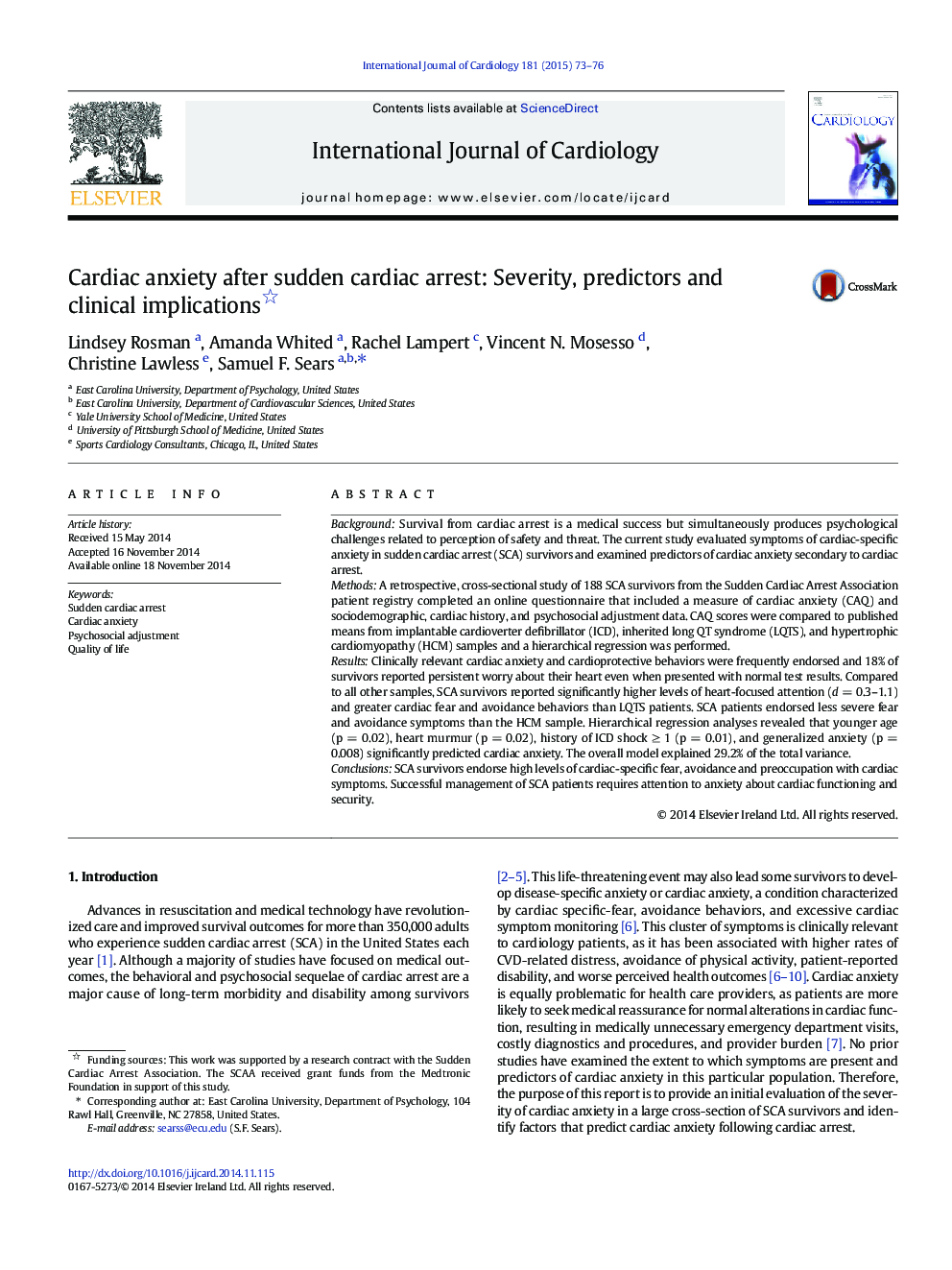| کد مقاله | کد نشریه | سال انتشار | مقاله انگلیسی | نسخه تمام متن |
|---|---|---|---|---|
| 5968508 | 1576171 | 2015 | 4 صفحه PDF | دانلود رایگان |
- Sudden cardiac arrest (SCA) survivors endorse high levels of cardiac-specific fear, avoidance and preoccupation with cardiac symptoms.
- 18% of SCA survivors report persistent worry about their heart even when presented with normal test results.
- 16.2% of SCA survivors routinely seeking medical attention for any perceived increase in heart rate or chest discomfort and 10% report that providers do not believe their symptoms are real.
- Compared to implantable cardioverter defibrillator (ICD), inherited long QT syndrome (LQTS), and hypertrophic cardiomyopathy (HCM) patient, SCA survivors report significantly higher levels of heart-focused attention.
- Successful management of SCA patients requires attention to anxiety about cardiac functioning and security.
BackgroundSurvival from cardiac arrest is a medical success but simultaneously produces psychological challenges related to perception of safety and threat. The current study evaluated symptoms of cardiac-specific anxiety in sudden cardiac arrest (SCA) survivors and examined predictors of cardiac anxiety secondary to cardiac arrest.MethodsA retrospective, cross-sectional study of 188 SCA survivors from the Sudden Cardiac Arrest Association patient registry completed an online questionnaire that included a measure of cardiac anxiety (CAQ) and sociodemographic, cardiac history, and psychosocial adjustment data. CAQ scores were compared to published means from implantable cardioverter defibrillator (ICD), inherited long QT syndrome (LQTS), and hypertrophic cardiomyopathy (HCM) samples and a hierarchical regression was performed.ResultsClinically relevant cardiac anxiety and cardioprotective behaviors were frequently endorsed and 18% of survivors reported persistent worry about their heart even when presented with normal test results. Compared to all other samples, SCA survivors reported significantly higher levels of heart-focused attention (d = 0.3-1.1) and greater cardiac fear and avoidance behaviors than LQTS patients. SCA patients endorsed less severe fear and avoidance symptoms than the HCM sample. Hierarchical regression analyses revealed that younger age (p = 0.02), heart murmur (p = 0.02), history of ICD shock â¥Â 1 (p = 0.01), and generalized anxiety (p = 0.008) significantly predicted cardiac anxiety. The overall model explained 29.2% of the total variance.ConclusionsSCA survivors endorse high levels of cardiac-specific fear, avoidance and preoccupation with cardiac symptoms. Successful management of SCA patients requires attention to anxiety about cardiac functioning and security.
Journal: International Journal of Cardiology - Volume 181, 15 February 2015, Pages 73-76
